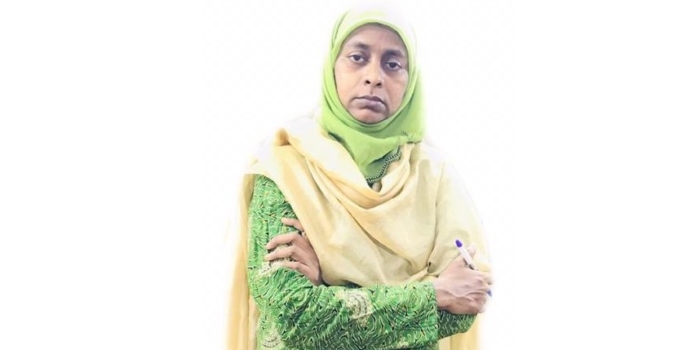This article was first published at counterview.org
by Rahul Reddy Bikka
Our Metro and Tier-1 cities have come a long way in development. Every year governments boast on various infrastructure development plans, but they stay quiet in monsoon season. We have witnessed flooding of low lying areas and stinking smell from urban lakes and water bodies. The primary reasons being severe encroachment and waste dump in water bodies, biological oxygen demand has shot up so much that the acceptable levels is < 10% of the current level. In the words of Dr Lubna Sarwath, ex-convenor and current member of SOUL NGO, the problem exists in almost every major city but awareness and empowerment vary a lot.
She mentions that she alone is fighting 13 cases in court across India on the conservation of water bodies. Being a member of the socialist party, she took a multifaceted approach in tackling the issue. She points that working with various NGOs in different cities helps in maximizing awareness and participation. In addition, local people approach her to point out some encroachment or polluting activity in their vicinity. She immediately explains various options to tackle, empowering them for future issues.
“She believes in empowering locals on the waterbodies with requisite knowledge on how to tackle bureaucracy and ways to litigate the issues.”
When fighting issues like these, sustained motivation in the people plays a key role. Dr Lubna says that people have many personal commitments, work pressures, tending to family needs etc. But all the issues are interlinked with the current environmental problems. Health and Hygiene, groundwater quality, everything affects one’s personal life. She says that the core issue is now at the centre of various parties such as public, government, public organizations, media and judiciary.
She particularly mentioned that “youth and local people nowadays are very active and believe only in the judiciary to resolve the issue”. She says that the “judiciary is now worried on government rather than public in following orders”.
She recollected instances when she was invited for a lake clean up by some organizations for PR activity. The chief guests being corporators, MLAs and ministers, she pointed out before them that the onus of cleaning the lake rests with the government itself and questioned the employee’s engagement on a weekend, when they can have some family time at home. She questions the recent trend on social media where a group of employees of organization spends some hours on cleaning a lake or riverside despite knowing that they should be spending the family time on the same riverside for recreation. The efforts should be better spent on highlighting the anomalies in all the recreation spaces to district collector or concerned authority.
Media takes a safe position while reporting the news. The contrasting and one-sided statements on two reputed newspapers on the same issue is a proof in itself. Reputed channels approached Dr Lubna during the court case and she demonstrated the pollution activity by getting into the lake but the issue never saw news the other day. She says that media should not work with fear or favour. However, Dr Lubna emphasized that, a continued pressure with articles to publish on mainstream media would be helpful if they chose to highlight the issue once in a while.
“Repeated representation of the issues on mainstream media is the key to put pressure on bureaucracy.”
Art and Culture is being used to represent the issue of conservation of water bodies in novel ways. Reputed sand artists helped Dr Lubna in highlighting the water scarcity in Hyderabad. Film production teams from U.S, U.K, Germany and other states approached and created content on the issues. Given all the representation and stir in the public, the judiciary still seems slow in their judicial processes.
She sternly mentions that the delay in judgements in courts, NGT, HRC and other tribunals is the key to the problem of impending pollution and encroachments. RTIs filed on the cases pending on the waterbodies is replied with administrative issues and blank responses.
Dr Lubna reflects that many a times activists encounter these situations where they can’t rely on government, courts, or any other authority. It is important to approach the issue on multiple fronts. All the facets of movement are necessary to keep the issue alive and pressing in the minds of people and government to achieve justice.
“If we believe we deserve the best governance, it is important to exercise the right of questioning the wrong in its inception, as we fund the government with our tax money”.
—
*PGP 2020-2022, IIM Bangalore













